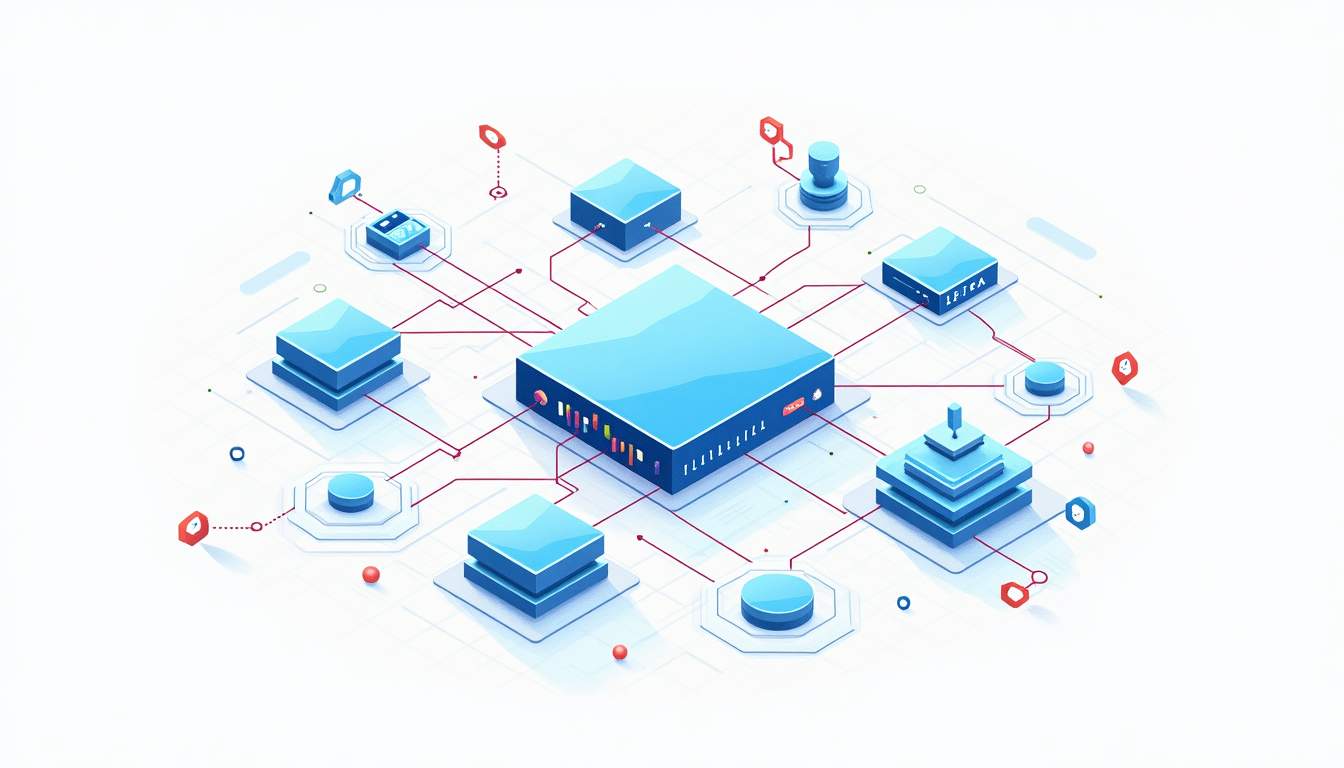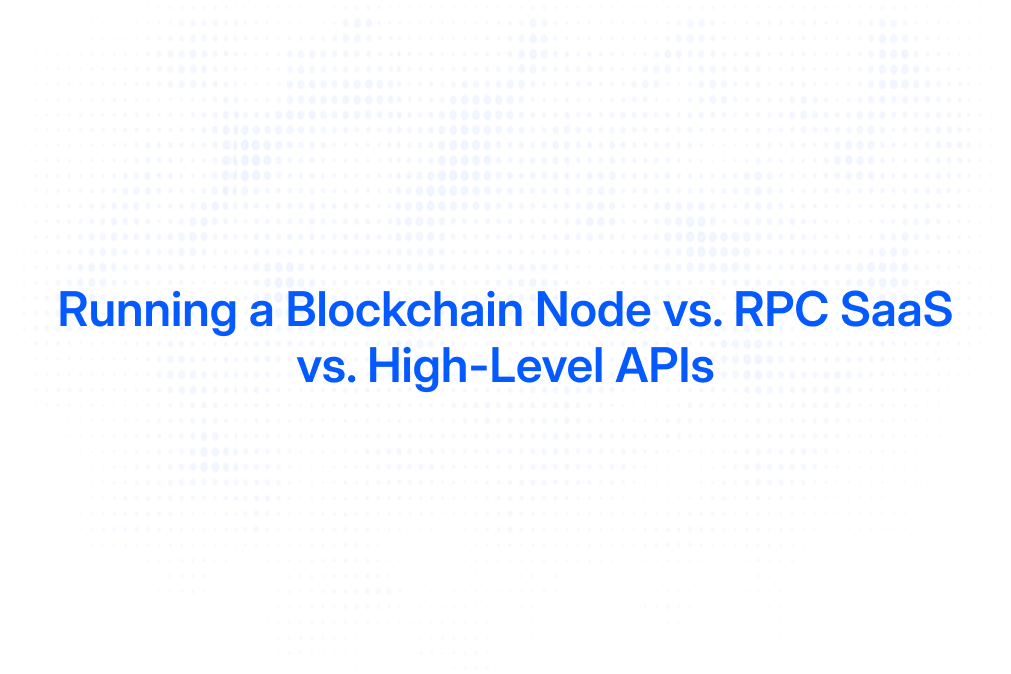Why Uniblock Is the “OpenRouter for Blockchain APIs”
In the rapidly evolving Web3 ecosystem, blockchain applications demand robust, scalable, and cost-effective infrastructure to deliver seamless user experiences. At the heart of this infrastructure lies the crucial technology of Remote Procedure Call (RPC) providers, which enable decentralized apps (dApps) to interact with blockchain networks. Uniblock has emerged as a pioneering solution, often hailed as the “OpenRouter for Blockchain APIs.” But what exactly does this mean, and why is Uniblock gaining so much traction among developers and enterprises alike? This article explores the unique value propositions of Uniblock, its innovative approach to RPC routing, and how it is setting new standards for blockchain API infrastructure.
Understanding the Role of RPC in Blockchain Infrastructure
Remote Procedure Call (RPC) is the backbone of blockchain communication. It allows dApps to query blockchain nodes, submit transactions, and retrieve data. However, relying on a single RPC provider can lead to significant risks including downtime, latency issues, and high costs. This has led to the rise of multi-provider RPC routing solutions, which aggregate multiple RPC endpoints to optimize reliability, speed, and cost-efficiency.
Uniblock’s positioning as an “OpenRouter” reflects its core mission: to provide an open, flexible, and intelligent routing layer that connects dApps to multiple RPC providers seamlessly. This approach ensures that blockchain applications never suffer from outages or degraded performance due to provider-specific issues.
Why RPC Routing Matters for Web3 Projects
RPC routing is not just about redundancy; it’s about enhancing the overall user experience and developer productivity. By intelligently routing requests across multiple providers, applications can reduce latency, avoid bottlenecks, and maintain high availability even during network congestion or provider outages. Uniblock’s auto-routing technology embodies these principles, offering developers a reliable infrastructure foundation that scales effortlessly.
Uniblock’s Unique Approach: The OpenRouter Model
Unlike traditional RPC providers that operate as closed systems, Uniblock embraces an open, multi-provider routing architecture. This “OpenRouter” model enables developers to integrate a diverse set of RPC endpoints from various providers, including industry leaders and niche specialists, through a single unified API.
Multi-Provider RPC Routing: The Future of Web3 Infrastructure
Multi-provider routing is rapidly becoming the new standard for blockchain infrastructure. By leveraging multiple RPC providers, Uniblock mitigates the risks associated with single-provider dependency, such as downtime and price volatility. This approach also allows for dynamic load balancing and failover mechanisms, ensuring uninterrupted service.
For example, if one RPC provider experiences an outage or increased latency, Uniblock’s routing engine automatically redirects traffic to alternative providers without any manual intervention. This seamless failover capability is critical for mission-critical blockchain applications that require 24/7 uptime and consistent performance.
Open Ecosystem and API Aggregation
Uniblock’s platform also acts as an API aggregator, orchestrating calls across multiple blockchain networks and providers. This not only simplifies integration for developers but also provides enhanced analytics and optimization opportunities. The open nature of Uniblock encourages innovation and competition among RPC providers, ultimately benefiting the entire Web3 ecosystem by driving down costs and improving service quality.
Key Benefits of Using Uniblock as Your Blockchain API Router
1. Enhanced Reliability and Reduced Downtime
RPC downtime can be costly for blockchain projects, leading to failed transactions, poor user experiences, and loss of trust. Uniblock’s auto-routing technology significantly reduces the risk of downtime by distributing traffic intelligently across multiple providers. This redundancy ensures that if one provider fails, others seamlessly take over, maintaining uninterrupted access to blockchain networks.
2. Cost Optimization and Efficiency
Managing RPC costs is a critical concern for startups and enterprises alike. Uniblock’s routing engine optimizes API calls by selecting the most cost-effective providers based on real-time performance and pricing. This dynamic cost optimization can reduce RPC expenses by up to 40%, allowing projects to scale without breaking their budgets.
3. Latency Reduction Through Multi-Region Routing
Latency directly impacts user experience, especially in decentralized finance (DeFi) and gaming applications where speed is paramount. Uniblock supports multi-region RPC routing, directing requests to the nearest or fastest provider endpoint. This geographical optimization reduces latency and improves transaction throughput, giving dApps a competitive edge.
4. Developer-Friendly Integration
Uniblock offers a streamlined API that abstracts away the complexity of managing multiple RPC providers. Developers can integrate Uniblock’s single endpoint into their applications and benefit from automatic routing, failover, and load balancing without additional overhead. This simplicity accelerates development cycles and reduces operational burdens.
Comparing Uniblock with Other RPC Providers
When evaluating RPC solutions, it’s important to understand how Uniblock stacks up against established providers like QuickNode, Alchemy, and Infura. While these providers offer reliable RPC endpoints individually, they typically operate as single-provider platforms, which can introduce risks related to downtime and vendor lock-in.
Uniblock vs QuickNode and Alchemy
QuickNode and Alchemy are known for their robust infrastructure and developer tools, but they do not natively offer multi-provider routing. Uniblock’s advantage lies in its ability to aggregate multiple providers, offering superior redundancy and flexibility. Developers seeking an alternative to Alchemy’s or QuickNode’s single-provider model find Uniblock’s OpenRouter approach particularly appealing for its resilience and cost-effectiveness.
Uniblock vs Infura
Infura has been a pioneer in blockchain RPC services but has faced criticism over outages and pricing. Uniblock addresses these pain points by eliminating single-provider dependence and enabling dynamic routing to multiple providers. This not only enhances uptime but also provides significant cost savings, making it an attractive alternative for Web3 projects looking to optimize their infrastructure.
The Future of Blockchain Infrastructure: From RPC to OpenRouter
As blockchain adoption grows, the demand for scalable, reliable, and affordable infrastructure will only intensify. Uniblock’s OpenRouter model represents a paradigm shift in how blockchain APIs are managed and delivered. By combining multi-provider routing, API aggregation, and intelligent failover, Uniblock is setting the stage for the next generation of Web3 infrastructure.
Moreover, with emerging technologies like Google’s Multi-Cloud Proxy (MCP) gaining traction, the integration of multi-cloud strategies with OpenRouter solutions like Uniblock will further enhance scalability and resilience. This synergy promises to unlock new possibilities for decentralized applications, enabling them to handle millions of API calls efficiently while maintaining low latency and high availability.
Why OpenRouter Is the Logical Next Step
The evolution from single-provider RPC services to multi-provider OpenRouter platforms is driven by the need for greater reliability, cost control, and performance. Uniblock’s open and extensible architecture empowers developers to customize their RPC routing strategies, integrate new providers easily, and future-proof their applications against infrastructure risks.
In essence, Uniblock is not just another RPC provider—it is the connective tissue that binds the blockchain API ecosystem together, fostering interoperability and innovation.
Conclusion
Uniblock’s designation as the “OpenRouter for Blockchain APIs” is well-earned. Its innovative multi-provider routing technology addresses the critical challenges of RPC downtime, latency, and cost that have long plagued blockchain developers. By offering an open, flexible, and intelligent routing layer, Uniblock empowers Web3 projects to build more reliable, scalable, and efficient applications.
For developers and enterprises seeking to optimize their blockchain infrastructure, Uniblock offers a compelling alternative to traditional single-provider RPC services. It not only enhances uptime and reduces costs but also future-proofs applications in an increasingly complex and competitive Web3 landscape.
As the blockchain ecosystem continues to mature, solutions like Uniblock’s OpenRouter will be instrumental in driving the next wave of innovation and adoption.
Ready to elevate your Web3 project with the most resilient and efficient infrastructure? Join over 2,000 developers who are already harnessing the power of Uniblock to connect to blockchain data with ease. With support for 100+ chains, our platform is designed to eliminate vendor lock-in and streamline your development process. Start building with Uniblock today and experience the simplicity of our single API endpoint that intelligently auto-routes traffic, ensuring maximum uptime, minimal latency, and significant cost savings. Scale your dApps, tooling, or analytics with confidence and leave the complexities of decentralized infrastructure management behind.
.svg)


.png)



